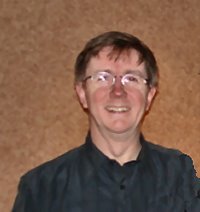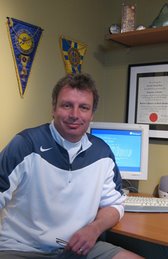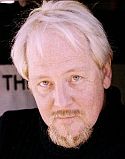From the Calgary Herald – Monday, May 21, 2007
Chronic Pain May Lead to Memory Loss
Study reveals shorter attention span in sufferers
JODIE SINNEMA EDMONTON JOURNAL, EDMONTON
When Deana Adams sliced her left hand on a sharp piece of steel at work more than three years ago, a doctor gave her four simple stitches, unaware that the nerve between her thumb and index finger had been severed.
The pain since then — zinging like a shock from an electric fence and running up her arm to her shoulder, neck and head — has been at times so severe it has affected her marriage, interrupted her sleep and stolen the good memory she prided herself in.
“I forget things really easily,” says Adams, 41, who works as a surgical processor at the University of Alberta hospital, sterilizing, decontaminating and organizing hospital equipment. “The pain takes over. It sort of just swarms in and says, ‘ Here I am, listen to me,’ and you want to do anything to relieve it.”
Adams’s memory problems are common among people with chronic pain, says new research from the University of Alberta.
Bruce Dick, a clinical psychologist at the Multidisciplinary Pain Centre at the U of A hospital, discovered two-thirds of people with chronic pain had some measure of cognitive impairment that shortened their attention span and made it difficult to remember things. Half of those people had significant memory issues, especially when multi-tasking.
“Chronic pain is something that is disruptive,” said Dick, whose research paper appears in this month’s edition of the journal Anesthesia and Analgesia. “Part of the rationale for doing this study is we have some fairly good medical treatments aimed at helping relieve pain. What’s more difficult sometimes is affecting the bigger picture of people’s lives, so trying to lesson the disability or helping improve people’s quality of life.”
Knowing that chronic-pain sufferers may have difficulty remembering certain details during their day, pain therapists may be able to develop new strategies to help patients overcome the gaps.
Adams works through her memory lapses with cue cards that list the intricacies of putting together full surgical sets at work. If she’s called away from a task, these notes keep her on track.
At home, Adams’s attention has also suffered. She used to plow through paperbacks in hours, but now picks up a half-read book and can’t remember the plot line. She forgets conversations and birthday cards she’s sent.
“Emotionally, when it first happened, I got depressed really bad,” she said. “When you’re in pain, you don’t want anyone to touch you. You don’t sleep. You don’t eat. You’re constantly on guard.”
Since then, she has cut back on her medication, but still takes 27 different pills throughout the day.
Dick hopes his study will provide “some validation for the people who suffer with these complex pain problems. It can be easy for a patient to jump to a conclusion that ‘I’m crazy.’ ”
Wednesday, May 23, 2007
Saturday, May 5, 2007
Wow - a week of rest. How cool is that. I've been doing research for the play, interviewing two, three sometimes four people a week. It's exhausting...for many reasons. First of all, trying to fit this in around full time jobs is always challenging, just ask any of us on the Advisory Committee for this project...or for that matter, just ask any artist in Canada. Most of us work day jobs.
So what do we all do during the day? I'm glad you asked.
Dr. John Clark is an renowned and respected expert in the field of treating pain. He is the Medical Director for the Calgary Health Region Chronic Pain Centre. On weekends he is usually off somewhere presenting papers, giving talks, teaching...and sometimes I think he fits in a ski weekend.
Dr. Chris Spanswick, also a well respected expert in the field of pain management, who wrote the textbook "Pain". He is also the Medical Lead for the Calgary Health Region Regional Pain Program and an avid hockey fan.
Dr. Paul Taezner is a clinical psychologist and founder of the Chronic Pain Centre Pilot Project (with Dr. Pam Barton). He is also in demand and often off presenting or teaching somewhere in the world, while juggling his duties with the Calgary Health Region, the Chronic Pain Centre and seeing patients.
Terry Kane, though retired from traveling with the Calgary Flames, is still a busy man. He is a physiotherapist at the Calgary Health Region Chronic Pain Centre and also maintains a private practice. He also presents and lectures, as well as spending time with his family.
Hal Kerbes normally would be in Calgary running his company Shadow Productions, writing and probably acting as well. But this summer he is in Chemainus, BC, at the theatre festival. You can see him starring in two different plays if you're out there. Plus he's still juggling the writing and trying to do some research for the play as well. You have to admire someone who can learn two plays at once and actually say the right lines on the right night!
And me, I'm at the Calgary Health Region Chronic Pain Centre during the daytime, faithfully transcribing medical reports. At night, I turn into a writer. I am currently working on editing my sixth murder mystery (Kate Carpenter Mysteries), selling a medical thriller (Mind Games), finishing a novel about a mother and her two daughters (Finding Evangeline) and writing a play that has affected my life deeply.
So there, that's the first reason it's exhausting. And the second is the emotional impact. I find it interesting that I thought as I researched this I would be able to distance myself from the emotions. But I underestimated the power of the stories that I am hearing.
And I forgot that us writers are kind of crazy people too. These characters float around in our heads and sometimes they become very real (to us) and you begin to feel the emotions as if they were your own. I have been known to drive down the Deerfoot in tears, sobbing because I've just written a scene in my head where my characters from my murder myster series have had a huge fight. I've laughed out loud in very inappropriate places when I've come up with a funny scene. Now you know why some of those really famous writer's drank so much...coping with all these extra emotions from all these imaginary characters!
But seriously, again I want to thank everyone who has shared their stories with me so far, and I look very forward to hearing more as the summer moves on!
So what do we all do during the day? I'm glad you asked.
Dr. John Clark is an renowned and respected expert in the field of treating pain. He is the Medical Director for the Calgary Health Region Chronic Pain Centre. On weekends he is usually off somewhere presenting papers, giving talks, teaching...and sometimes I think he fits in a ski weekend.
Dr. Chris Spanswick, also a well respected expert in the field of pain management, who wrote the textbook "Pain". He is also the Medical Lead for the Calgary Health Region Regional Pain Program and an avid hockey fan.
Dr. Paul Taezner is a clinical psychologist and founder of the Chronic Pain Centre Pilot Project (with Dr. Pam Barton). He is also in demand and often off presenting or teaching somewhere in the world, while juggling his duties with the Calgary Health Region, the Chronic Pain Centre and seeing patients.
Terry Kane, though retired from traveling with the Calgary Flames, is still a busy man. He is a physiotherapist at the Calgary Health Region Chronic Pain Centre and also maintains a private practice. He also presents and lectures, as well as spending time with his family.
Hal Kerbes normally would be in Calgary running his company Shadow Productions, writing and probably acting as well. But this summer he is in Chemainus, BC, at the theatre festival. You can see him starring in two different plays if you're out there. Plus he's still juggling the writing and trying to do some research for the play as well. You have to admire someone who can learn two plays at once and actually say the right lines on the right night!
And me, I'm at the Calgary Health Region Chronic Pain Centre during the daytime, faithfully transcribing medical reports. At night, I turn into a writer. I am currently working on editing my sixth murder mystery (Kate Carpenter Mysteries), selling a medical thriller (Mind Games), finishing a novel about a mother and her two daughters (Finding Evangeline) and writing a play that has affected my life deeply.
So there, that's the first reason it's exhausting. And the second is the emotional impact. I find it interesting that I thought as I researched this I would be able to distance myself from the emotions. But I underestimated the power of the stories that I am hearing.
And I forgot that us writers are kind of crazy people too. These characters float around in our heads and sometimes they become very real (to us) and you begin to feel the emotions as if they were your own. I have been known to drive down the Deerfoot in tears, sobbing because I've just written a scene in my head where my characters from my murder myster series have had a huge fight. I've laughed out loud in very inappropriate places when I've come up with a funny scene. Now you know why some of those really famous writer's drank so much...coping with all these extra emotions from all these imaginary characters!
But seriously, again I want to thank everyone who has shared their stories with me so far, and I look very forward to hearing more as the summer moves on!
Subscribe to:
Posts (Atom)






